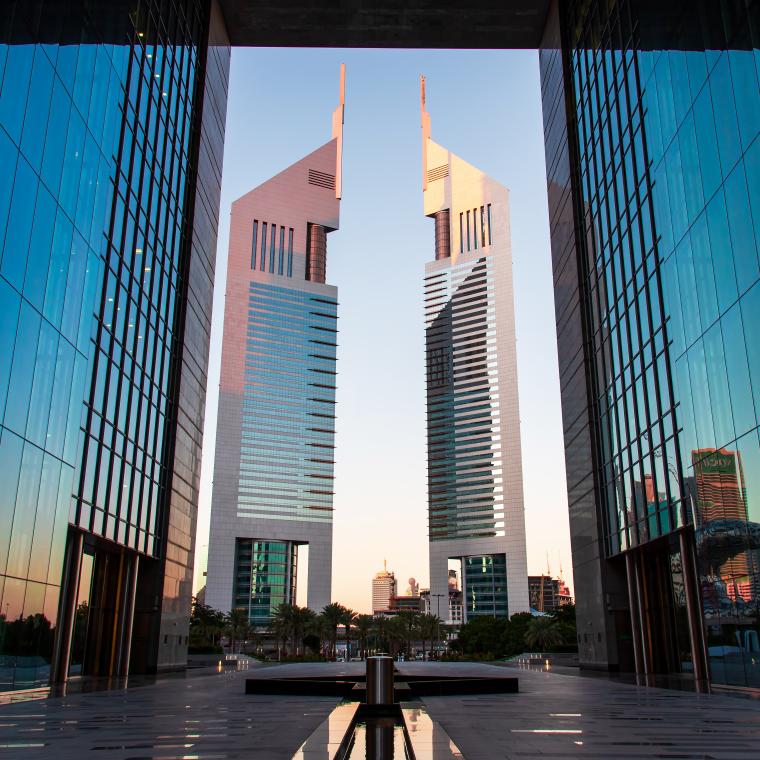
Foundations have become a popular option for regional wealth structuring and succession planning in the UAE. Here, in a Q&A with MEA Finance, Nina Auchoybur, Managing Director, breaks down the structure of a foundation and details the benefits it can provide to both families and businesses.*
*This interview was first published in MEA Finance on 05/10/20
What is a foundation?
A foundation is an independent legal entity and is derived from civil law jurisdictions, as opposed to a trust which is a common law concept. It also has no members or shareholders, but is self-owned. The foundation's founder bestows assets to the foundation and owing to its separate legal status, will hold those in its own name and separately from the founder’s personal wealth. Those assets are then managed by the foundation council (equivalent to a board of directors for a company) in accordance with the foundation’s charter and by-laws (reflecting the intentions of the founder) in support of a cause or a purpose, or for the benefit of beneficiaries.
What differentiates a foundation from a trust?
This a common question that we're asked as a trust is often a more familiar concept. A trust is a legal obligation or relationship between the settlor (the person who creates the trust), the trustee (the person in charge of the trust) and the beneficiary (the person who receives benefits from the trust). Legal ownership of the trust sits with the trustees and beneficial ownership with the beneficiaries.
What are the main reasons for establishing a foundation in the UAE and what advantages do they offer families and businesses?
At the moment we are seeing a variety of foundation structures being implemented to hold trading companies, real estate and liquid investments. It is an attractive vehicle for these purposes because it provides a number of benefits including:
Asset protection - Because the foundation's assets do not belong to the founder, they are not readily accessible to creditors, governments or other family members, provided certain conditions are met.
Privacy - The beneficiaries of a foundation are private and so the founder's family wealth can be managed more discreetly. This provides its own benefits including:
- reduction of the risk of claims/judicial actions from third parties against the founder and their family to extort a monetary benefit/settlement;
- better bargaining power when negotiating business deals and/or acquiring assets;
- reduced risk of being targeted and befriended by unscrupulous individuals in order to access their wealth; and
- less urgency for potentially uncomfortable discussions around pre-nuptial agreements for the founder or heirs.
Flexibility - With the separation of legal and beneficial ownership, a foundation enables families to facilitate their inter-generational legacy planning and wealth protection objectives, particularly where the family is internationally mobile with assets in multiple jurisdictions.
Effective succession planning - Foundations provide assurance that the assets (or their benefits) will be distributed as per the wishes of the founder under the terms of the foundation, irrespective of succession laws. Even where enforceable wills are possible, they only work on death and do not protect assets against bankruptcy, incapacitation, imprisonment and divorce. A foundation can help with all of these issues as well as negating lengthy probate issues on death, giving much greater continuity.
Improves family governance - Foundations provide an effective corporate governance framework (similar to a company or single-family office), which allows for wealth to be managed in a professional manner to benefit the founder and his or her family.
Enables philanthropic giving - A foundation can evolve alongside the founder's vision and ethical wishes and can be used to support issues close to the founder's heart.
Establishes a legacy - Through a foundation, the founder's goals continue in perpetuity.
Do UAE inheritance laws affect the functionality of a foundation?
This is an area where we work with specialist local lawyers to ensure that the issues in relation to UAE inheritance laws - mainly referring to certain key provisions of the UAE Personal Status Law No. 28 of 2005 - are identified and the corresponding risks are mitigated to the extent allowed under applicable UAE laws. The approach taken will often depend on the religion of the founder and of his or her family, as the laws apply differently to Muslims and non-Muslims.
Although the assets still belong to the foundation after the founder's death (unless otherwise stated in the foundation's by-laws), no structure or legal mechanism can prevent a third party from bringing a challenge. Often the party most likely to be challenging would be disgruntled heirs who would be set to receive more under the UAE Personal Status Law than with the foundation.
Depending on the individual family dynamics and situation, in accordance with the intentions of the founder and upon advice from specialist local lawyers, and potentially a Shariah scholar, and where there are significant concerns of a challenge, we would normally recommend the following:
- All transfer of assets into the foundation be structured in a certain manner e.g. as a gift or acquisition. The timing and value of such transfers are also important.
- If advisable, make the foundation Sharia compliant, both in terms of the investments/assets held by the foundation and distribution to be made by the foundation. **
What information is accessible by the public?
All three UAE foundation regimes (DIFC - Dubai International Financial Centre, ADGM - Abu Dhabi Global Market and RAKICC - Ras Al Khaimah International Corporate Centre) provide for private foundations with very limited information in the public domain.
Only generic information such as the foundation's name, address, date of incorporation and, for the ADGM, the name of the registered agent, is available on the ADGM and DIFC respective online registers. Neither do the DIFC nor the ADGM requires the filing of the foundation's by-laws (which contain the details of the beneficiaries) and filing of accounts if a registered agent such as Ocorian is appointed and therefore the founder's family wealth can be managed discreetly.
In the case of RAKICC, there is no equivalent online register and the by-laws are filed with its authority, who retain the information privately.
Supporting your wealth plans
Regardless of the complexity of a foundation's structure, we enable our clients to pass on the benefits of their assets in full accordance with their wishes to ensure their legacy is preserved in accordance with all legal and regulatory requirements.
Get in touch with our team below to discuss how we can support your private wealth plans or click here to learn more about our foundation services.
**[The author is not a legal or Sharia professional and their views expressed are their own and do not necessarily reflect official laws, not do their constitute advice]

